3 Possible Discussion before FOMC June Meeting
No recent event has the same impact as the FOMC June meeting. It is the time Feds deciding another rate hiking after the May's CPI in the United States beats estimate last friday.
A series of consequences appeared: 1. The US treasury rate jumped, and the 10-year US Treasury bond yield jumped to nearly 3.5%; 2. US dollar strengthened rapidly and the dollar index exceeded 105; 3. US stocks fell for five consecutive trading days,$S&P 500(.SPX)$ dopped more than 10%.
This week, the yields of 5-year and 30-year US bonds are upside down again, and assets without cash flow or remote cash flow assets are under greater pressure. Markets agree that the Fed needs a steeper path to raise interest rates in order to achieve its policy goal of controlling inflation. Chicago Mercantile Exchange (CME) Fed Watch Tool, from June 10-15,The likelihood that the Fed will raise interest rates by 75 basis points this week has risen from 23.2% to 98.6%, with another 75 basis point increase in July,It is possible to achieve the range of 3.25%-3.50% of federal funds by the beginning of next year.
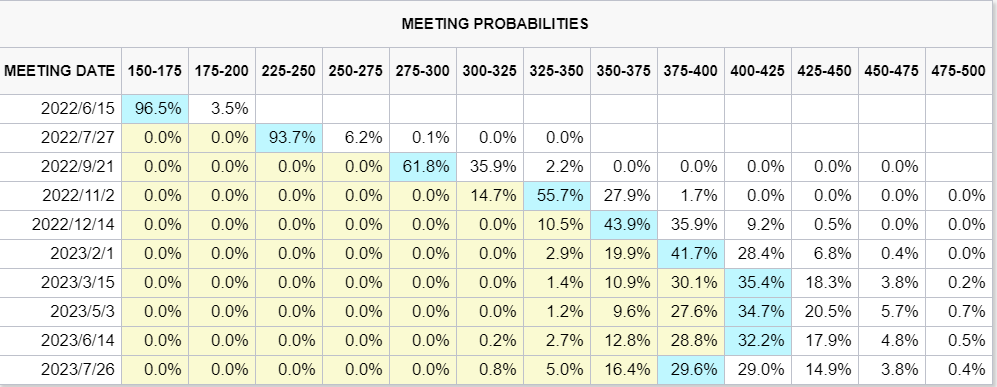
Inflation has soared in a mess, and the Fed was one of the "accomplices", because they chose to turn a blind eye when they should pay attention to it. But now is not the time to pursue responsibility, but to discuss the immediate solution.
Statement 1: The Fed needs to let the stock market fall.
The former Federal Reserve chairman, who is already Treasury Secretary, said last month that although US stocks have fallen a lot this year, the asset valuation of US stock markets is still on the high side. Bill Dudley, former chairman of the New York Federal Reserve as a dove, also said,If stocks don't fall, the Fed needs to force them to fall. Because it is necessary to "tighten financial policy".
After careful calculation, since Paul Volcker defeated inflation in the 1980s, the problem faced by the Fed has been how to deal with the "tightening" environment. Therefore, monetary policy tends to increase employment rate and consumption.Thereby realizing the wealth effectTherefore, the balance of IR401 (k) account has been increasing for two decades, and the spending power of American people has also increased. But now it is different. If stocks continue to rise, it will give consumers more assets to stimulate consumption, and their demand will continue to aggravate inflation.
Therefore, the Federal Reserve should control inflation reasonably at the expense of letting the stock market fall, real estate fall or even the unemployment rate rise to a certain extent.
To put it more popularly, under the current sufficient reserve mechanism,Ordinary interest rate hikes alone are not enough to fight inflation, and the Fed will use the "reverse wealth effect" brought about by falling asset prices to curb inflation.
Statement 2: The Fed doesn't care about the stock market at all.
The implication is not that the Fed needs to "actively" value stock market assets higher or lower, but that any decision of the Fed will not take into account the reaction of the stock market.
Paul Donovan, chief economist of UBS, said that it is meaningless to discuss whether the stock market is a bull or a bear, and the label of a "bear market" cannot solve the economic problems. And, in proportion,Only half of American households own stock assets,Therefore, the economic importance of the decline in equity assets is not so high.
Therefore, apart from the possible "political interference" (Biden invited Powell to the White House for tea), the Fed's consideration of raising interest rates is only heard by them at presentIt's not as good as inflation at first sight. If we want to keep inflation down as much as possible, it is not enough to keep up with inflation, but should exceed the current market consensus (for example, raising the benchmark interest rate above the neutral interest rate).
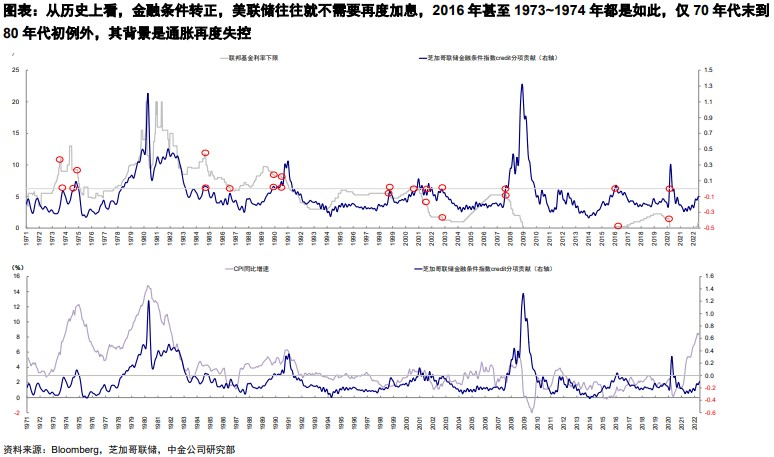
Statement 3: No matter the Fed QT, recession is inevitable
The S&P 500 index fell below its low this year, and many people think that the Fed will use "central bank put options" or other measures to boost the stock market. The so-called central bank put option means that the central bank releases liquidity to rescue the market when the market falls.
But can the Fed, which began to shrink its balance sheet in June and has an unprecedented large balance sheet, really control market liquidity easily?
In Volcker's case, in 1979, the main constraints on credit creation by the private sector were the amount of bank reserves provided by the Federal Reserve. Volcker used tools to control the money supply tightened the supply of reserves, triggering a sharp rise in currency prices-the federal funds rate soared to 22% at one point. This surge plunged the American economy into recession and inflation subsided.
But can this method still be applied at present?
Today, private sector banks hold about $3.66 trillion in excess reserves, about 2,000 times the $18 billion in excess reserves before QE began in 2008. As interest rates rise and expectations rise, the number of borrowers is decreasing. Having a lot of reserves under QEPrivate banks are actually relaxing lending standardsTo attract borrowers. The behavior of commercial banks is actually furtherReduced the effect of the Fed's tightening policy.
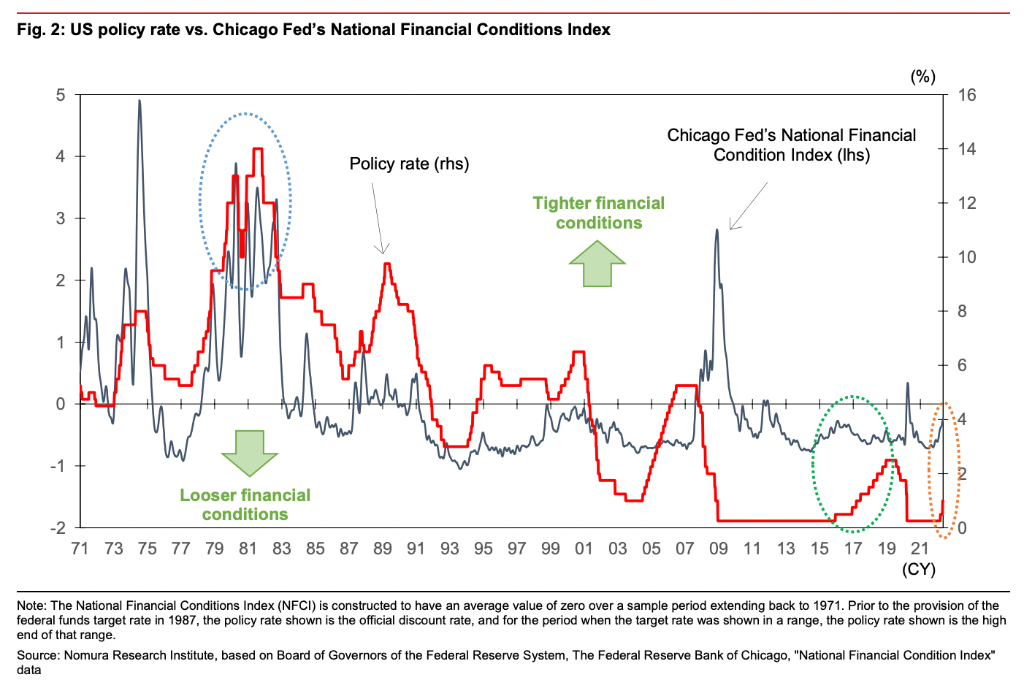
Now the speed of QT is twice that of the previous tightening stage. If the pace of 2018 is adopted, it will take at least three years to digest all the excess reserves provided under the quantitative easing policy after the epidemic.
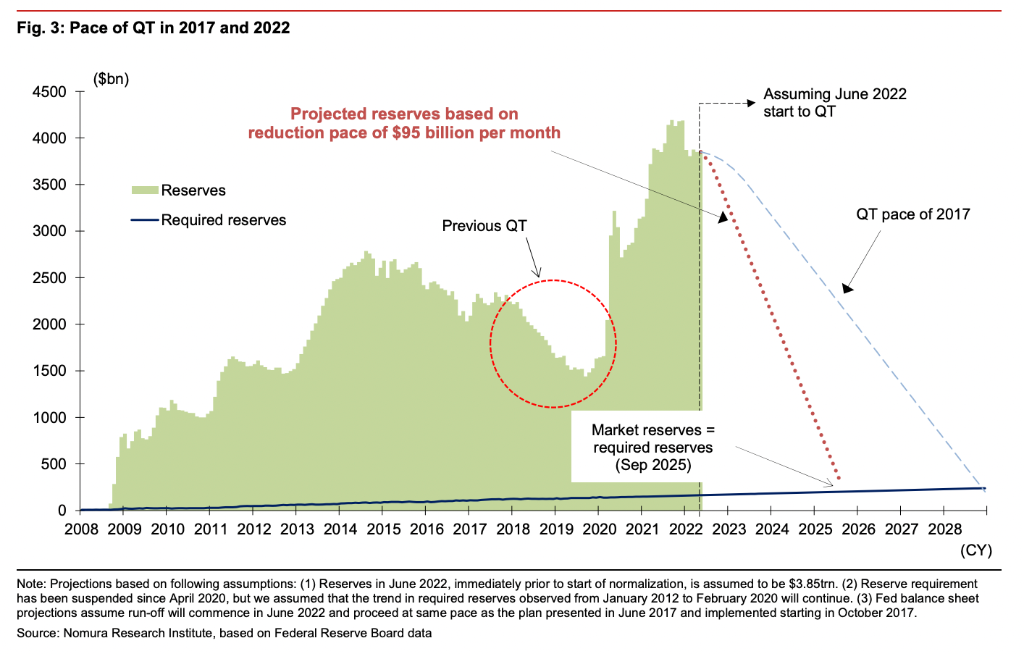
Therefore, for the US market, no matter whether the Federal Reserve raises interest rates by 50 basis points, 75 basis points or 100 basis points, the effect of quantitative tightening cannot be truly and efficiently implemented into the economy.The risk aversion of assets brought about by interest rate hikes and the liquidity contraction of financial markets brought about by scale reduction will accelerate the depreciation of assets.
At present, the only winner of stagflation is the US dollar. And when the dollar index began to fail to preserve its value, it was the beginning of the financial crisis.
So, if you were Powell, how would you choose?
$10年美债主连 2209(ZNmain)$$S&P 500(.SPX)$$NASDAQ(.IXIC)$ $iShares TIPS Bond ETF(TIP)$ $USD Index(USDindex.FOREX)$
 What would you do if you were Powell?(Single choice)
What would you do if you were Powell?(Single choice)Disclaimer: Investing carries risk. This is not financial advice. The above content should not be regarded as an offer, recommendation, or solicitation on acquiring or disposing of any financial products, any associated discussions, comments, or posts by author or other users should not be considered as such either. It is solely for general information purpose only, which does not consider your own investment objectives, financial situations or needs. TTM assumes no responsibility or warranty for the accuracy and completeness of the information, investors should do their own research and may seek professional advice before investing.

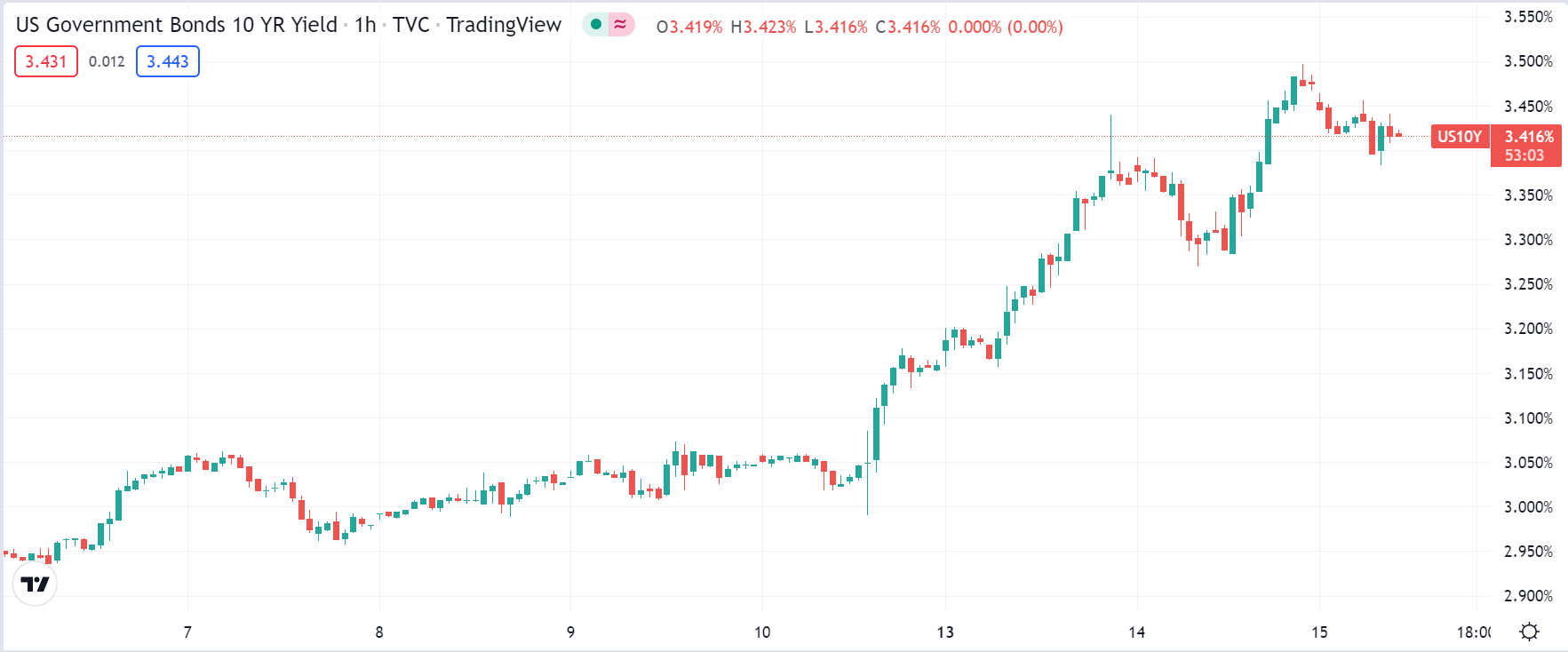
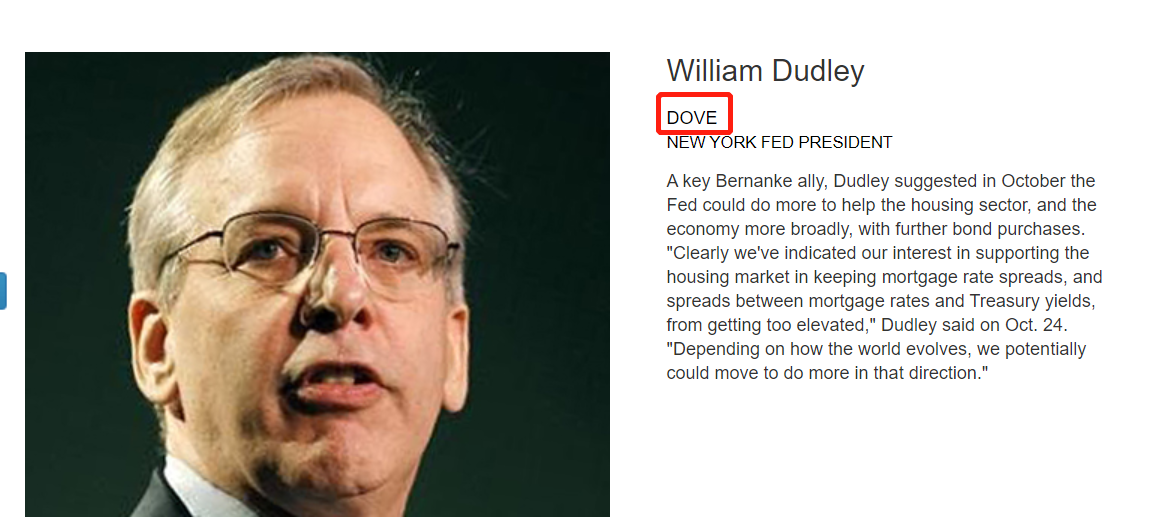
surely there must be other options
by choosing to increase interest rates, the repurcussion is great
Nice to know